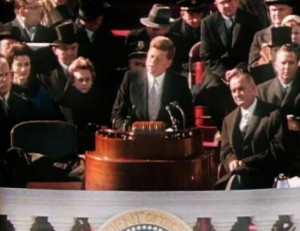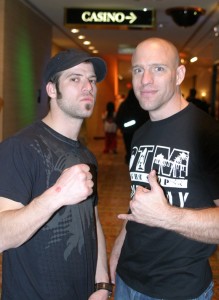One characteristic that I always believed to have that set me aside from my peers is my speech giving, orating, and presenting skills. In high school I used to knock that kind of stuff out the park. I gave huge speeches as Student Body VP, I made the best Power Points for class, and I never had a hard time in front of the camera.
First RCL project is a presentation. Thats it? Easy A. I could do it with my hands behind my back. At least, that was my thought process up until 5 minutes before I presented. I hate those 5 minutes. Right before you have to get up. The adrenaline kicks in – its fight, flight, or speak. You second guess yourself and the option to panic presents itself. I usually stay calm in these situations though. But Tuesday was just not my day.
I noticed two things right before I presented: 1. I’m in college now, the big leagues, I had to step up my game. And to make matters worse, this was an Honors course. Every little detail was being observed. 2. I was among a group of students that are just as good, if not better than me, at speaking – a situation I’ve never truly been in before. So, I panicked.
I’ve never been a fan of note cards or well rehearsed speeches. I’ve always felt that I can sound more genuine when I speak as I go along, and let it come from the heart. However this leaves me at a disadvantage – that if I don’t have an idea of what to say at certain cues, I have to make it up on the spot. And that is MUCH harder to do when you’re panicking. I noticed it immediately. “uhhs” and “yeeaahhss” are used as fillers. I repeat what I just said 15 seconds ago. So as a snowball gets bigger as it rolls down hill, the realization that I’m sucking in the middle of my speech only causes for more panic.
To make matters worse, my secret weapon completely failed me: humor. When you have a light, easy going approach to speeches like mine, I find it can be easy to be funny, or at least be entertaining. I took a page out of Stephen Colbert’s book and tried to replicate the kind of humor he gets when he does his “The Word” segment. The part of his show where he narrates, and a visual edit drops in a slide that provides humorous dry commentary. I should’ve seen this from the first day of presentations: It was a tough crowd. No one REALLY was listening to all 30 some speeches, most of us were tired, and so there was little crowd reaction to just about anything the previous presenters had said or done. It was just a wall of blank faces. That’s more than enough to make a decent presenter stumble a bit.
So what? I tripped a little bit. Certainly not the first time it happened, and at at least I wasn’t choking or freezing. I just have to get better for the next time. Perhaps prepare what should specifically said at certain cues a bit better, instead of free-balling off of the speaking points. Maybe I’ll try another approach to the humor thing, or maybe just kill it all together. I guess I’ll just wait to see what suggestions Ben has for me.
Also, Ben, if you’re reading this, thanks for being the only one who actually chuckled at the jokes I threw in the power point. It gave me the slightest relief that I wasn’t completely tanking.


